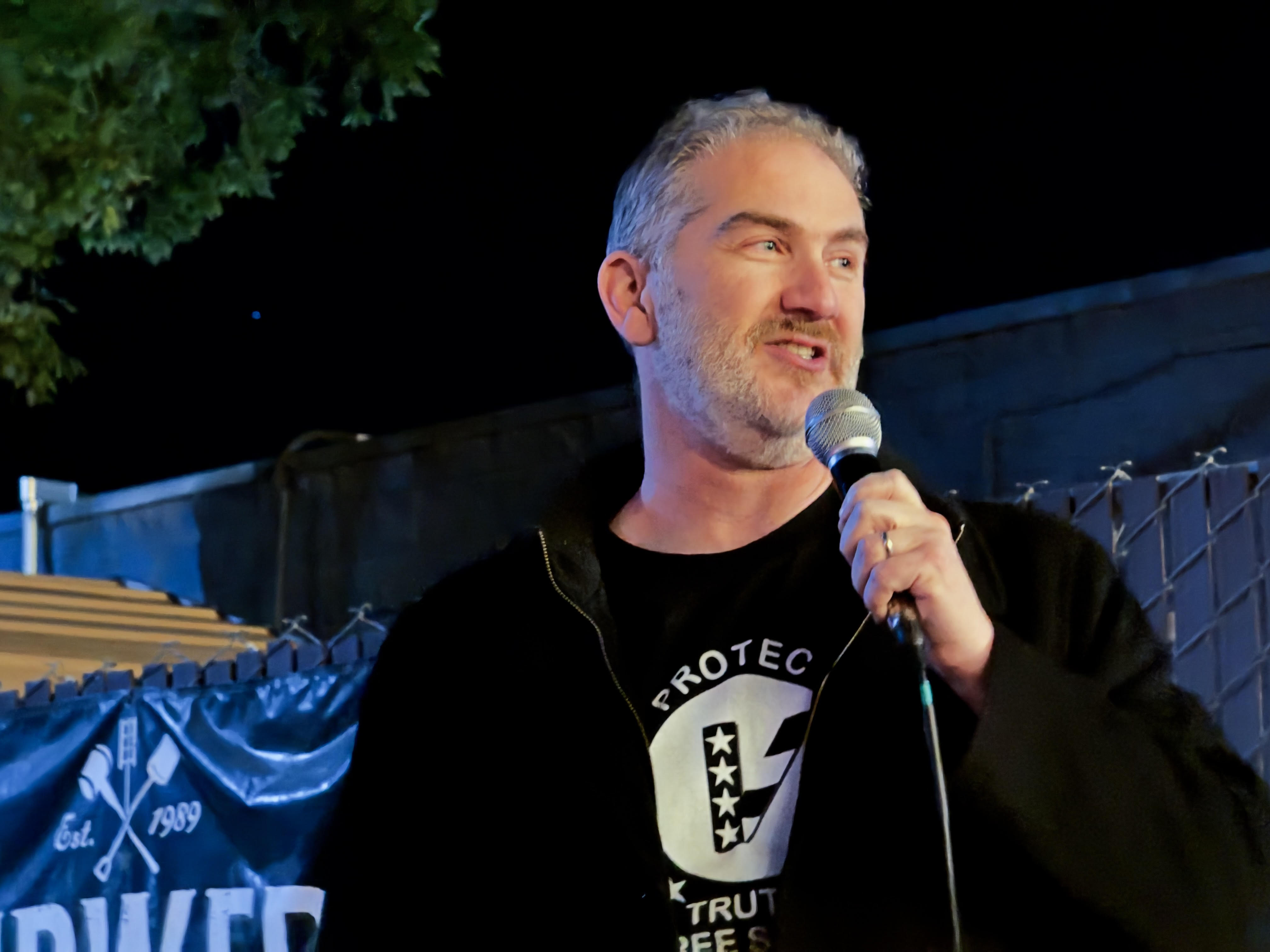

This week the burglary trial that lasted nearly four months came to an end. Not surprisingly, the jury convicted the three defendants on 78 counts. In the eight years of the Vanguard Court Watch, it was the longest running trial in a non-homicide case and it rivaled murder trials for Marco Topete and Daniel Marsh.
On Monday after lengthy deliberations the jury found Joseph Hernandez, age 26, of Pinole, Joshua Givens, age 25, of Benicia, and Rakhem Bradford, age 25, of Pinole, guilty of 78 felonies related to a 2013 Davis burglary ring.
In 2013, according to the DA’s press release, “there were an unusually high number of residential burglaries reported in the City of Davis and in the Cuarto Housing area on the UC Davis campus. Cuarto Housing is comprised of three buildings containing dorm rooms on the UC Davis campus. College students were targeted for their MacBook Pro laptop computers, (and) TVs and gaming systems were commonly stolen.”
During the several-year investigation, the police located surveillance footage that showed a male and female “lingering around and looking into windows as if they were “casing” the different apartments. The female was eventually identified as Esther Kwon and the male as Joseph Hernandez.”
Ms. Kwon became the key witness when she eventually told law enforcement about several other burglaries that were perpetrated by Joseph Hernandez and others working with him.
In an unrelated investigation, the Yolo County Sheriff’s Office served a search warrant at Mr. Hernandez’s residence, and photos showed possible stolen property from several Davis burglaries. Also located was “a short barreled shotgun and shells inside a dresser in Joseph Hernandez’s bedroom closet. Hernandez was prohibited from having a gun after a prior conviction for residential burglary.”
In December 2013, Davis Police interviewed Ms. Kwon, who implicated both Mr. Hernandez and Mr. Givens in several residential burglaries.
Further evidence from text messages on their phones “showed that Hernandez, Givens and Bradford were all working together to steal property, mostly MacBooks, from residences and then to sell them 
for profit.”
The four were arrested and charged with conspiring to commit 34 residential burglaries in the city of Davis and on the UC Davis campus. However, Ms. Kwon took a plea bargain in exchange for testimony against the remaining defendants.
The trial began on May 8 and concluded over five months later on October 2. Joseph Hernandez faces up to 93 years in state prison, Joshua Givens faces 26 years in state prison and Rakhem Bradford faces 15 years and 4 months in state prison
The Vanguard has over the years questioned the decision in many cases to over-charge. However, the issue here is quite different. The Vanguard covered much of the trial and the evidence against the individuals, while lengthy and exhausting given the overlapping investigations and sheer amount of burglaries, was clear and overwhelming.
The charges, given the number of separate crimes committed, also seemed reasonable.
The impact of the crimes themselves were large as well. Property crime in Davis had soared for a number of years. And as these big operations come into being, burglaries go way up.
The DA’s press release noted that Davis Police Chief Darren Pytel said, after the arrests of these suspects, home burglaries in Davis decreased by 54 percent and have not increased since then. “This investigation and prosecution was monumental,” said Chief Pytel.
DA Reisig appears to defend the lengthy sentences, noting the “potential” for violence involving home burglaries.
“Anybody who has had their home burglarized knows how much of a personal violation this is,” said DA Reisig. “And, home burglaries often result in serious violence when the homeowners confront the burglars. Taking these dangerous felons off the street has made Davis a much safer place.”
Still, a maximum 93-year sentence which adds in gun enhancements and other prior offenses for a burglary case doesn’t make a whole lot of sense. The interest of justice does not seem well-served here.
Fifteen years for Mr. Bradford, 26 years for Mr. Givens – that seems to be in line with a reasonable sentencing scheme.
However, Mr. Hernandez, just 26 years old – if he were sentenced to life he would be sentenced well past the point where he is a reasonable danger to society.
The research on sentencing schemes shows these kinds of sentences are ineffective.
For example, a review by Steven Durlauf of the University of Wisconsin and Daniel Nagin at Carnegie Mellon University found “little evidence that criminals responded to harsher sentencing, and much stronger evidence that increasing the certainty of punishment deterred crime.”
Marc Mauer, the executive director of the non-profit, the Sentencing Project, believes that “excessively lengthy incarceration of offenders—yes, even for violent crimes—is counterproductive, costly, and inhumane.”
He believes, “Congress and state legislative bodies should establish an upper limit of 20 years in prison as a maximum penalty, except in unusual cases such as a serial rapist who has not been amenable to treatment in prison or a mass murderer.”
In a recent article he cited research by criminologists Alfred Blumstein and Kiminori Nakamura who found that an “18-year-old arrested for robbery is no more likely to be arrested for this crime by the age of 26 than anyone in the general population. Thus, each successive year of incarceration after this decline sets in produces diminishing returns for public safety.”
He further notes, “This impact comes at great cost as well. Estimates are that the cost of imprisoning an elderly offender is double that of a young offender, largely due to high health-care costs. Given that public-safety resources are finite, incarcerating aging prisoners inevitably diverts resources from preschool programs, substance abuse treatments, and mental health interventions that all produce demonstrated and substantial crime-reduction benefits.”
In this case, while the DA argues this could have the potential for violence – there is no evidence that violence occurred. A 20-year sentence in this case would take Mr. Hernandez to his mid-40s where he would be far less likely to be a threat to society.
There is little doubt that Mr. Hernandez committed a crime that was costly to residents and authorities, but sentencing him to 93 years is not in the interest of justice and, somehow, the system needs to figure out a way to make this a more equitable sentence.
—David M. Greenwald reporting


The defendants were not given a life sentence.
Nothing in Reisig’s remarks says or implies that he wants a life sentence. His quote makes no mention of sentencing at all, just the magnitude of the crimes. Similar comments were echoed in the wording of the column itself. How can Reisig “defend” a sentence that has not yet been given?
Before criticizing something that never happened, let’s wait for the pre-sentence report. See what the recommendations are for sentencing, and see if a life sentence comment comes from the lips of any vested interest.
Aside from the length of the trial, the most notable part of this topic is the fact that one small group of persons were responsible for over half the residential burglaries in the Davis community! It’s hard to imagine the quantity of police resources that have been relieved by the arrest of these responsibles, resources that can now be re-allocated to other vital law enforcement tasks.
Prediction: No life sentence will be given. A subsequent column will come forth, and an apology will be rendered for a false portrayal of the prosecuting attorney’s state of mind. Prediction (revised): The first half of that prediction will happen, the second half, never.
“Before criticizing something that never happened, let’s wait for the pre-sentence report. See what the recommendations are for sentencing, and see if a life sentence comment comes from the lips of any vested interest.”
The DA’s press release indicated that the maximum sentence for Hernandez could be 93 years – a life sentence. The piece argued that a life sentence here would be inappropriate. That opinion holds whether or not he is ultimately given one.
I don’t know what the sentencing scheme is here, but it is quite likely given sentencing law that he will get something around that number – which again, I believe is inappropriate.
I did say that DA Reisig “appears to defend the lengthy sentence noting the “potential” for violence involving home burglaries.”
But other than that, I don’t think you can find any criticism in this entire piece. So even if he doesn’t get a life sentence (and talking around he probably will) I don’t think any apology is warranted – I stand by the statement that the lengthy sentence is inappropriate in this case.
That’s about as close to a retraction as probably can be expected. An apology was never anticipated.
As for not being able to find any other criticism in this piece, OK, there’s another fundamental point of criminal law that flaws this column. A district attorney can’t be held accountable for “inappropriate” sentencing.
District attorneys do not render sanctions in any convictions, judges do. One can’t factually blame a prosecutor for an excessive penalty when the magistrate hearing the case makes that determination.
“District attorneys do not render sanctions in any convictions, judges do. One can’t factually blame a prosecutor for an excessive penalty when the magistrate hearing the case makes that determination.”
Not exactly true, Phil. D.A.s do demand certain sanctions as part of a plea bargain. And the Yolo D.A. has in fact extracted extreme and overly harsh sanctions, that even the judge had concerns about, in a plea agreement, that had nothing to do with the “interests of justice.” Usually the judge decides the sentence, but not always. The D.A. is the single most powerful law enforcement officer in our system.
My local consultant with extensive knowledge of sentencing and the prison system would concur that these extremely long sentences are both costly and ineffective when dealing with these types of crimes even given the risk ( but not the factual occurrence) of violence. Involvement with these types of crimes is highly age dependent with a sharp decrease seen after around age 40-45. I am unsure, and would appreciate Phil’s input into what is gained by further incarceration after that point.